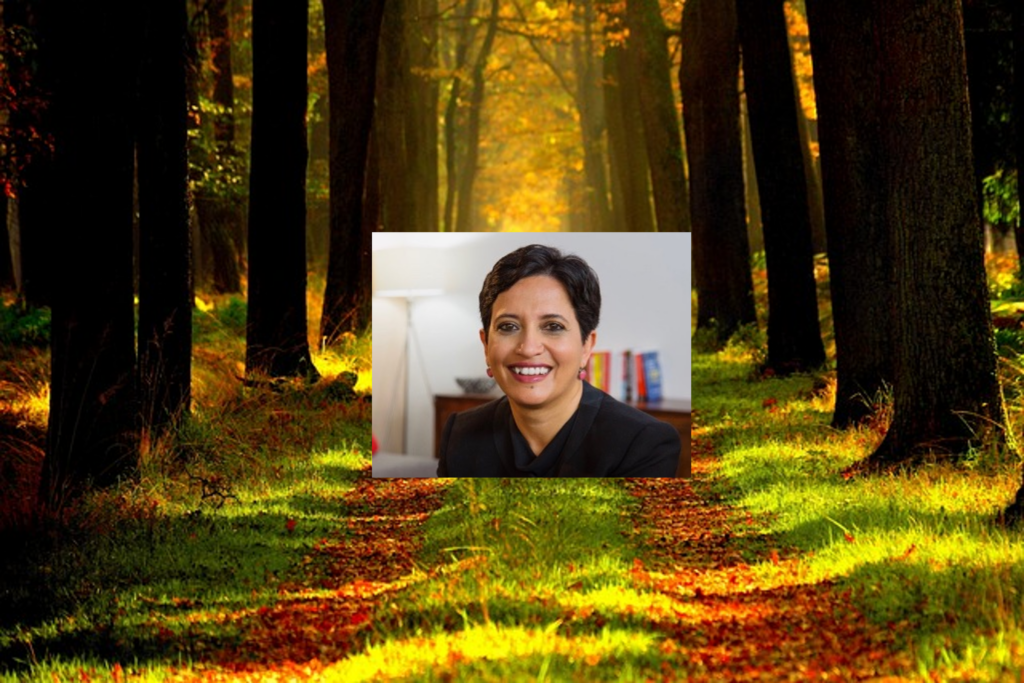Entrepreneur Journeys
The Startup Velocity Question: What Hinders Acceleration in VC Funded Companies?

I have been running 1Mby1M since 2010. I find myself saying to entrepreneurs ad nauseam that VCs want to invest in startups that can go from zero to $100 million in revenue in 5 to 7 years.
Startups that do not have what it takes to achieve velocity should not be venture funded.
Experienced VCs, over time, have developed heuristics to gauge what constitutes a high growth venture investment thesis.
>>>1Mby1M Udemy Courses with Sramana Mitra: Bootstrapping

Over the course of two years, we have released over 70 courses on Udemy with the aim to democratize entrepreneurship education at scale globally. This series of posts aims to help you find the one you need easily and provide you with discount coupons.
>>>Cleantech In Food: Purfresh CEO Dave Cope (Part 1)
Dave Cope joined Purfresh in 2004 as chief marketing officer and was promoted to CEO in 2006. Prior to Purfresh he was president and CEO of BizGenics and held a variety of executive positions for Extricity, Marimba, Illustra, and IBM. Mr. Cope holds a bachelor’s degree in chemistry and biochemistry from San Jose State University.
SM: Dave, let’s start with your background. Where are you from?
DC: I was born and raised in San Jose. My family is from the Bay Area as well. My grandfather played football for the University of Santa Clara, went on to play for the New York Giants, and then opened a chain of sporting good stores across the western United States. >>>
Featured Videos
Can 1M/1M Help Me Raise Money?
How Does 1M/1M Democratize Entrepreneurship Education?
How Does 1M/1M Democratize Management Consulting?
When Is The Right Time To Join 1M/1M?
Can 1M/1M Help Me With Business Development?
Can 1M/1M Help Me With Market Sizing?
Can 1M/1M Help Me Validate My Product?
Will I Have Private 1-on-1 Sessions In 1M/1M?
How Does 1M/1M Help Entrepreneurs Connect With Silicon Valley?
Mentoring or Consulting?
Why Does 1M/1M Charge $1000 a Year?
Why Does 1M/1M Partner With Local Organizations?
Why Don\’t Mentoring Networks Work?
Why Is It Important To Study With 1M/1M Now?
Dan Stewart Story
Vikrant Mathur Story
Creative Bootstrapping To A 350 Million Dollar Exit: Nimsoft CEO Gary Read (Part 1)
Gary Read has been the president and CEO of Nimsoft for the past six years. He is a more than twenty-year veteran of the high-tech world, with extensive expertise in monitoring and systems management software. Prior to Nimsoft, Gary was vice president of sales and marketing at RiverSoft, a provider of advanced network management products, where he was a key member of the executive team that led the company to a successful IPO and its eventual acquisition by Micromuse. He has also been the vice president of marketing at BMC Software and has held sales and marketing leadership roles at Boole & Babbage and MAXM Systems.
SM: Let’s start at the beginning of your story, Gary. What is your background?
GR: I am originally from England. I grew up in a suburb of London. >>>
Artist As An Entrepreneur Photographer: Tom Mangelsen’s Images of Nature (Part 1)
I ran into Tom Mangelesen in Jackson, Wyoming, while on a trip to visit Yellowstone and Grand Teton national parks. Tom has a wonderful gallery there, and as I looked at his wildlife photography I started talking to Tom’s business partner and longtime friend about the gallery. I discovered a lot of interesting aspects about the business of art, and what it takes to be an artist entrepreneur. >>>
Pioneering SaaS In Business Process Optimization: Ariba’s Kevin Costello (Part 1)
SM: Kevin, let’s start with some historical perspective of Ariba. You joined the company after it went public, correct?
KC: Ariba was a company that was one of the founding members of the dot-com explosion that occurred in the mid to late 1990s. It was focused on helping organizations optimize a business process. The process Ariba worked on was the procurement process. >>>
From Zero To One Hundred Million: TheLadders.com CEO Marc Cenedella (Part 1)
Marc Cenedella is the cofounder and CEO of TheLadders.com. Founded in 2003, TheLadders.com is a premier online job board for jobs with salaries of more than $100,000. Prior to TheLadders.com, Cenedella worked as a senior vice president of finance and operations at HotJobs.com and was an associate vice president at The Riverside Company, a New York-based private equity firm. He graduated with a BA in political science from Yale and an MBA from Harvard.
SM: Marc, let’s start at the beginning of your story. What is your background?
MC: I went to school at Yale, where I studied political science for my undergraduate degree. Coming out of school I had no idea what business was about. I knew I wanted to go into business, but I was not really sure what that would entail. I remember that I had to ask my uncle what the difference between sales and marketing was. >>>
Monetizing People Search: MyLife.com CEO Jeff Tinsley (Part 1)
Jeff Tinsley is the founder and CEO of MyLife. He created the company in 2002 under the name Reunion.com after meeting his wife at his 10-year high school reunion. The company now has a membership of more than 50 million. Prior to MyLife, Tinsley was a founder and CEO of GreatDomains.com, the world’s leading secondary domain name marketplace. At the end of 2000, the company was acquired by publicly-traded VeriSign, the Internet’s leading domain name registry, for a reported $100 million. Tinsley is also involved in a number of private Internet companies as an investor and advisor.
SM: Jeff, to begin, tell me about yourself. Where does your story begin?
JT: I am an Internet geek. I have been in the Internet space since 1994. >>>
Online K-12 Education IPO In The Great Recession: Archipelago Learning Co-founders Cameron Chalmers, Dave Muzzo, And CEO Tim McEwen (Part 1)
David Muzzo and Cameron Chalmers cofounded Study Island in May 2000 and have been vice president and director, respectively, since January 2007. Both received a BS from Vanderbilt University. Prior to founding Study Island, Cameron served as a software engineering lead developer for Lucent Technologies, and David founded Captive Marketing Concepts, which he sold in 1999. In early 2009 the group rebranded under the name Archipelago Learning, keeping Study Island as the core product while branching out into other “islands of excellence” united under a single brand.
SM: To begin, I would like to get the personal background of the first character in the story. Where does the story begin?
DM: Cam and I met in college, and we were fraternity brothers. We went to school at Vanderbilt. >>>
Taking On Microsoft And Google From India: InstaColl Founders Sumanth Raghavendra, Kaushal Cavale, And Their Mentor Sabeer Bhatia (Part 1)
Kaushal Cavale and Sumanth Raghavendra are childhood friends from Bangalore and the cofounders of InstaColl. After graduating from BMS College of Engineering and the University of Phoenix (Thunderbird), respectively, they worked in technical IT positions in the United States. They returned to India in 2000 to fulfill their dreams of starting a business. In 2005, they persuaded Sabeer Bhatia to invest in the company and become their mentor. The result is InstaColl, a collaborative online service competing with Microsoft Office.
SM: I would like to start at the point of the story where the entrepreneurs came together. Where does this story start?
SR and KC: We were childhood friends. >>>
Building One Of The World’s Biggest Tech Blogs From New Zealand: ReadWriteWeb Founder Richard MacManus (Part 1)
Richard MacManus is the founder and co-editor of ReadWriteWeb, which he founded in April 2003. Today ReadWriteWeb has millions of readers and is syndicated by the New York Times. Through his blog, Richard has become well known for forecasting technology trends and how they will be adopted or used throughout the world. Richard was born, raised, and continues to live in New Zealand. He has a bachelor’s degree in English literature.
SM: Let’s start at the beginning of your story. Where do you come from?
RM: I come from Wellington, New Zealand. I was actually born on the South Island, but we moved to Wellington when I was 11. >>>
Putting China On The Silicon Valley Map: NetScreen And Fortinet Founder Ken Xie (Part 1)
Ken Xie started his first network security company, Stanford InfoSystem, Inc., in 1993. A few years later, he realized the performance limitations of a software firewall and started NetScreen. NetScreen later was acquired by Juniper for $3.5 billion. At the end of 2000, Xie founded Fortinet, which pioneered Unified Threat Management (UTM). Ken earned his BS and MS in electronic engineering from Tsinghua University in China and attended Stanford University, where he pursued a graduate degree in electrical engineering.
SM: Ken, take me back to the beginning of your story. What is the genesis of your entrepreneur spirit?
KX: I am from Beijing, China. I have been here 20 years. I came here to study in 1990. I had earned my bachelor’s and master’s in China. My parents were both professors at home. >>>
